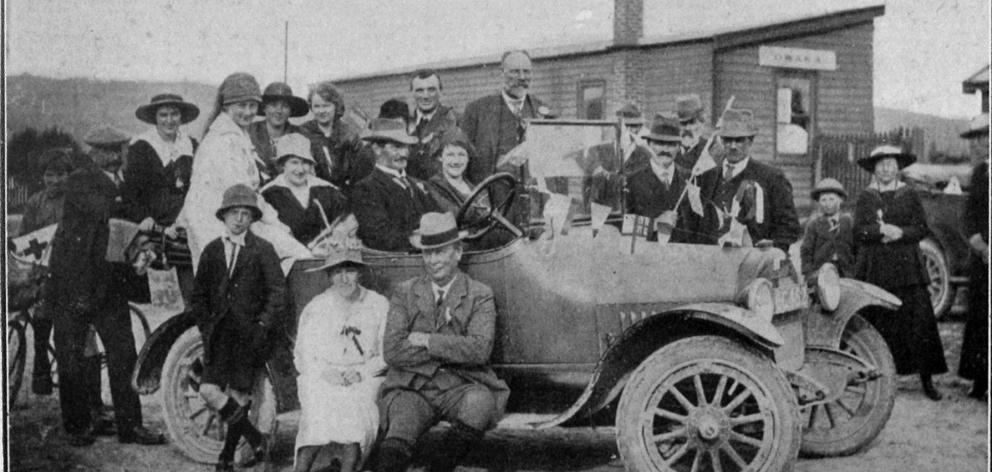
That gentleman recently convened a meeting of men prominent in the commercial world, and outlined his scheme:
"We are here to decide definitely whether or not Australia is to be brought within 150 hours' flying distance of London; and if we decide that it is to be done, I am here to consummate and to put into immediate effect that decision, aerial science having rendered possible such an achievement. No one machine could fly with safety from London to Australia. That task could only be accomplished in relays, and, when it is a matter of maintaining a mail service, the pilots would also have to be worked in relays.''
Mr Lloyd suggested 300-mile stages, and a route that would traverse Australia, New Guinea, Celebes, Borneo, Penang, Malay Archipelago, Burmah, India, Afghanistan, Persia, Arabia, Egypt, Northern Africa, Spain, and France.
The article states that the money to finance the expedition was subscribed in the room, and that the expedition would leave Sydney on November 14 to make a preliminary survey of the route and map out landing-places, a work which will occupy six months.
Germany exhausted
WASHINGTON: Mr Dosch Fleurot cables from Berlin: "The strongest impression I get on coming into Germany is that the country can expect a certain famine unless her former enemies come to her aid. The trains are heatless and lightless, and the trams in Berlin are muddy and shabby. There are few loungers in the vast, empty cafes, and almost all the traffic in the streets consists of worn-out soldiers, homeward bound. The general impression is one of prolonged misery, unequalled by what I have seen during the war. Germany has reached the absolute limit, and now lies exhausted.
"Bolshevism won't come in Germany if work and food are obtainable. Germany's temper is not Bolshevistic but famine may destroy the resistance which already has been weakened seriously. If Germany becomes Bolshevistic she will constitute a menace to other lands. This danger can be averted if we have food. If America wishes to help Germany to establish herself as a firm democracy, and avoid proletarianism or autocracy, then you must give us food immediately.''
Influenza update
Dr Bowie was convinced that there was a decided improvement as compared with the previous day. The admissions to the institution had dropped from 35 on Sunday, and 34 on Saturday, to 19 on Monday. This was a satisfactory decrease, and while it is not anticipated that this reduction will be maintained there is reason to believe that each day will see an improvement in this respect.
Many pitiable cases were met with. In one home there was absolutely no food at all. In another a woman and five children were "down'' and in yet another, where the man had been out of work for six weeks, the mother and six children were laid up. - ODT, 27.11.1918.












